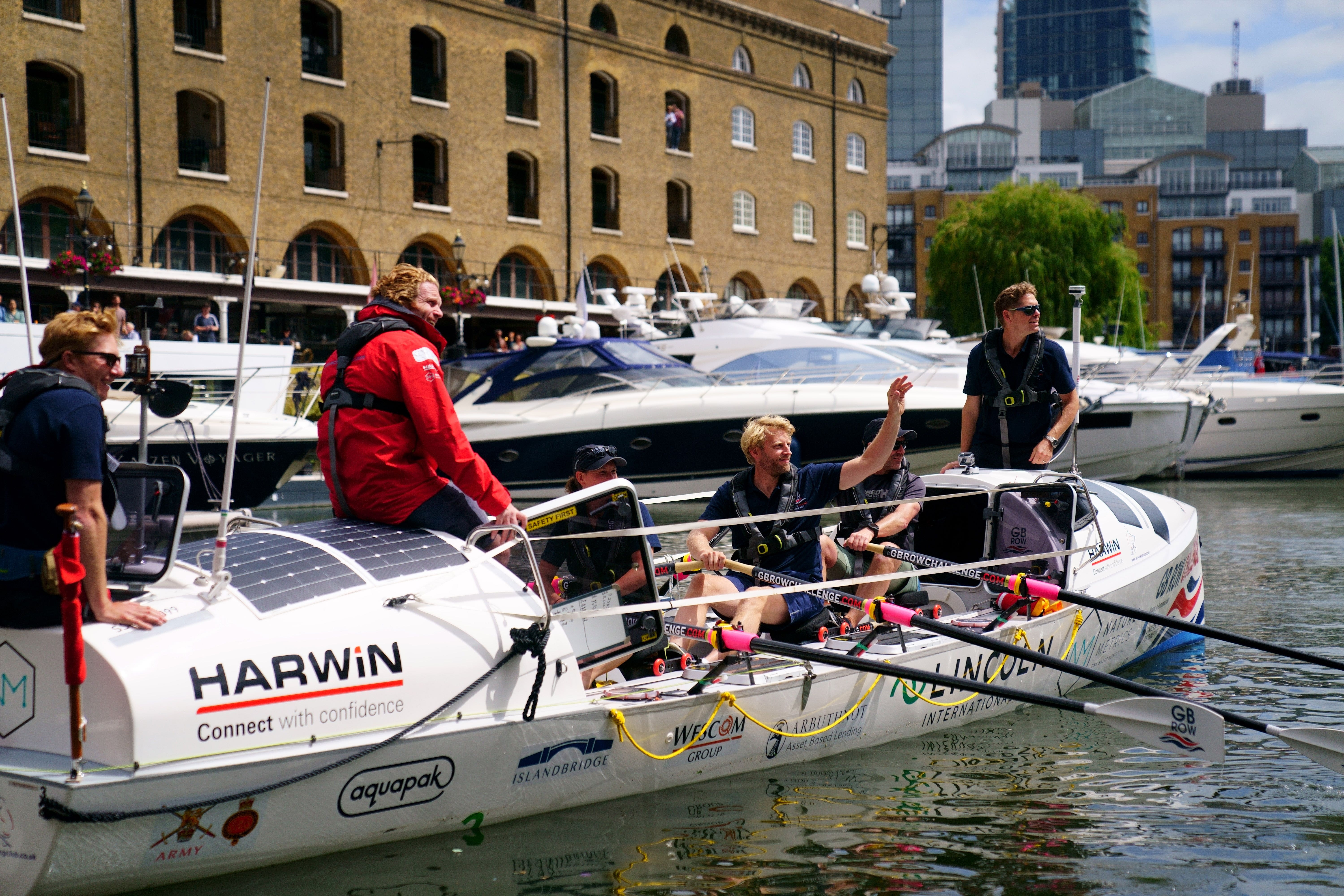Microplastics found in UK waters at 100 times the level of six years ago
Samples for the research were gathered by the three rowing teams who took part in the 2,000-mile GB Row Challenge to circumnavigate the country.

Your support helps us to tell the story
From reproductive rights to climate change to Big Tech, The Independent is on the ground when the story is developing. Whether it's investigating the financials of Elon Musk's pro-Trump PAC or producing our latest documentary, 'The A Word', which shines a light on the American women fighting for reproductive rights, we know how important it is to parse out the facts from the messaging.
At such a critical moment in US history, we need reporters on the ground. Your donation allows us to keep sending journalists to speak to both sides of the story.
The Independent is trusted by Americans across the entire political spectrum. And unlike many other quality news outlets, we choose not to lock Americans out of our reporting and analysis with paywalls. We believe quality journalism should be available to everyone, paid for by those who can afford it.
Your support makes all the difference.Microplastics pollution in the country’s coastline waters have been found at 100 times the level of six years ago, according to a new study.
Samples for the research were gathered by the three rowing teams taking part in the 2,000-mile GB Row Challenge to circumnavigate the country last summer.
They were analysed by scientists at the University of Portsmouth, who found levels of microplastics in the water at up to 100 times the level of data collected by the Centre for Environment, Fisheries and Aquaculture Science (Cefas) in 2017.
Ocean pollution is one of the biggest challenges of our generation
The microplastics found in the Cefas study ranged from 0-1.5 microplastics per cubic metre of sea water while those found in the University of Portsmouth study ranged from 0-121 microplastics per cubic metre of sea water.
The researchers said the increase is mainly because smaller sized particles have been captured in the steel filters used for the new study, providing a more accurate picture of the levels of pollution.
The research also found evidence of increased microplastics pollution in rivers, with four times as much found in the Thames, although this could be affected by sampling methods.
Dr Fay Couceiro, of the university’s School of Civil Engineering and Surveying, said: “Ocean pollution is one of the biggest challenges of our generation.
“The data collected by GB Row Challenge will greatly enhance our understanding of conditions in the seas around the UK.
“The equipment used to collect data during the event has enabled us to capture much smaller particles – so we have been able to get a more accurate picture of where and how concentrated microplastics are.
“Over time it will significantly improve our understanding of the challenging problem of microplastics in our water.”
Dr Couceiro added: “In many species, eating large numbers of microplastics has negative impacts ranging from reduced growth, to aberrant development, to cell toxicity.
“Considering the possible negative impacts, it is essential that we have a better understanding of how many microplastics are in our waters and that we have a way to monitor them.”